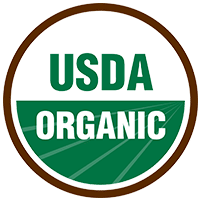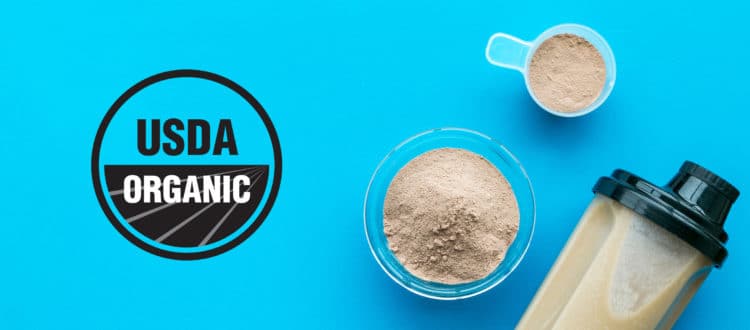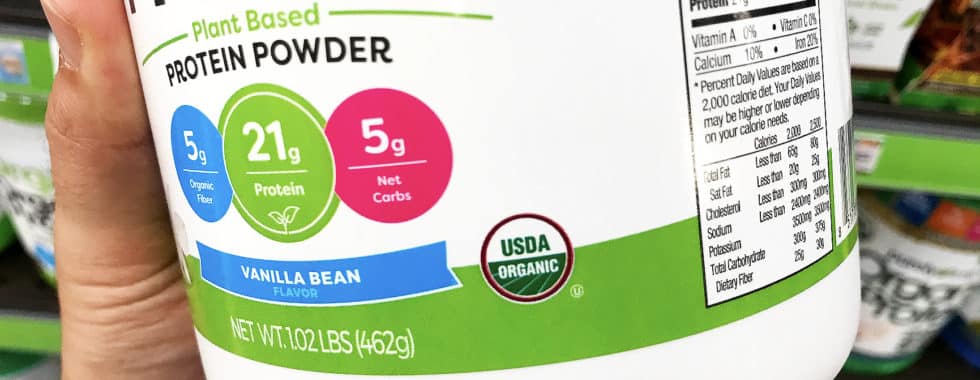How Organic Is Organic?
With more than 22,000 certified organic farms and businesses in the United States, the national organic market hit $52.5 billion, up 6.3% from 2018. This steady growth has created an entrepreneurial opportunity for producers and processors looking to enter the organic sector.
To sell, label, and represent your product as organic, you must receive certification from the United States Department of Agriculture (USDA). A USDA certification, the seal found primarily on food and dietary supplements, verifies that your farm or handling facility complies with the department’s organic standards.

Some advantages of having your products be certified organic include:
- Receiving premium prices for your products
- Accessing fast-growing local, regional, and international markets
- Supporting your local economies
- Accessing additional funding and technical assistance
- Containing minimal irritation and allergies for your consumers
- Containing no harmful toxins and chemicals
Though we see the USDA Organic Seal a lot at our local grocery stores, there are 4 different categories of organic products.
100% Organic
As the highest level of organic products, this certification is very difficult to receive. Mainly found on the front panel of single-ingredient products, the USDA Organic Seal is distributed to products that are produced and processed using only organic methods and ingredients and do not contain any ingredients from the National List of Prohibited Substances.
Powders containing a single or mixed 100% organic ingredient(s) are most likely, out of the three categories discussed in this article, to be 100% organically certified. Tablets, on the other hand, are less frequently given a 100% organic certification, unless they use 100% organic compressible materials. Capsules cannot receive anything higher than a “Made with Organic” Certification due to there not being any 100% organic capsule shell material available in the market.
USDA Organic
The majority of organic products fall within this category, excluding capsules for similar reasons as stated above. Using only organic methods, these powders and tablets contain a minimum of 95% organic ingredients. The other 5% of ingredients are non-GMO that are not found on the National List of non-organic ingredients permitted in agriculture and processing.
Made with Organic Ingredients
Unlike “100% Organic” and “USDA Organic,” these products cannot use the USDA Organic Seal anywhere on the package because they only contain between 70% to 95% organic ingredients. Instead, they can use the phrase “made with organic…” and list up to 3 ingredients or food groups on the front panel.
Though they cannot use the seal, companies that are committed to sustainability can use this category as a stepping stone towards developing fully organic products. The products are still certified organic, creating the perfect opportunity for companies to utilize this category as they search for organic sources.
As the NOP currently allows, capsules are restricted to a “Made with Organic” claim. Pullulan, with much debate around its commercial availability being the only current allowable ingredient in organic capsules, is not considered a fully organic material. This restricts capsules from having a 100% Organic or USDA Organic claim. The regulatory environment around this may change when the NOP accepts Pullulan as an organic material. For now, the highest organic certification that a capsule can contain is “Made with Organic.”
Organic in the Ingredient Panel
If a product contains 70% organic ingredients or less, it cannot use the USDA Organic Seal or make any front panel claims about organic certification. However, these products can specify the organic ingredients in the ingredient panel. Similar to the “made with” category, this is a good opportunity for companies to show their commitment to sustainability as more consumers are reading labels.
As one of the quality-leading dietary supplement manufacturers, Paragon strives to achieve the best practices to maintain our GMP certification from the industry’s leading organizations. Our facility is certified organic by both QAI and Organic Certifiers, giving us the capabilities to produce organic supplements for our clients. Learn more about our other certifications, or find your local Organic Certifier.


